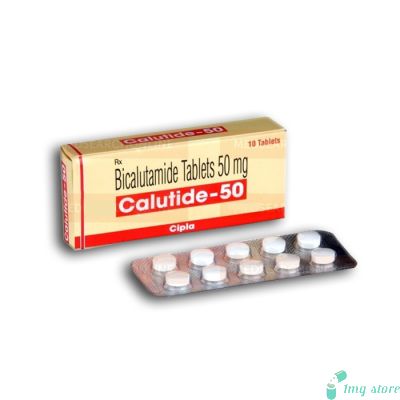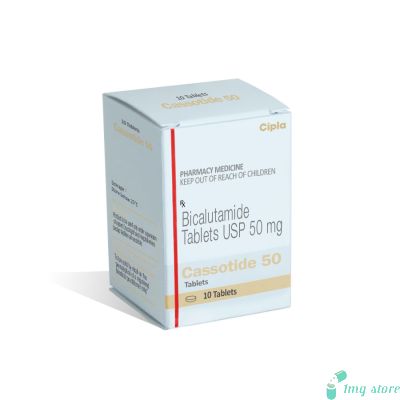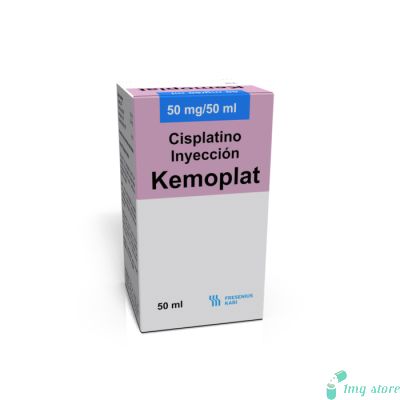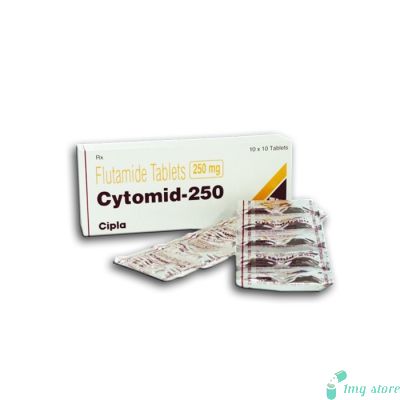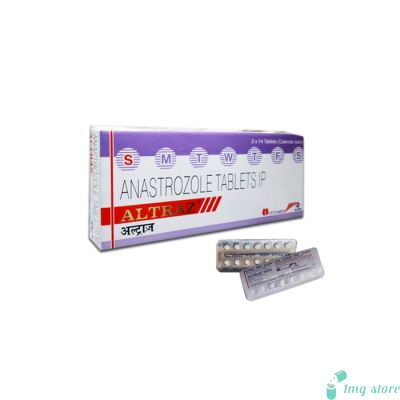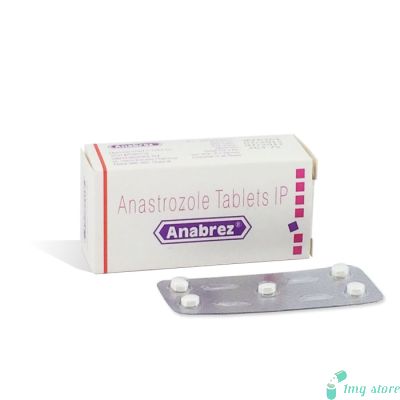Dacilon Injection (Dactinomycin)
Dactinomycin Injection, also known by its brand name Dacilon or trade name Cosmegen, is a potent anticancer medication that belongs to a class of drugs called antitumor antibiotics.
Introduction of Dactinomycin Injection (Dacilon)
Dactinomycin injection, also known by its brand name Dacilon or trade name Cosmegen, is a potent Anti-Cancer medication that belongs to a class of drugs called antitumor antibiotics. It is derived from the bacterium Streptomyces and is primarily used in the treatment of various types of cancer. Dactinomycin works by interfering with the growth and replication of cancer cells, thereby inhibiting the spread of the disease. Cosmegen is a trade name for the medication Dactinomycin injection. It is an intravenous formulation of Dactinomycin that is widely used in the treatment of different types of cancer. Cosmegen contains the active ingredient Dactinomycin, which belongs to the antitumor antibiotic class of drugs.
Dosage Information of Dactinomycin Injection:
The dosage of Dactinomycin injection depends on several factors, including the type and stage of cancer, the patient's age, weight, overall health, and response to treatment. It is usually administered under the supervision of a healthcare professional in a hospital or clinical setting. Dactinomycin is given as an intravenous (IV) injection, meaning it is injected directly into a vein. The dosage of Dactinomycin can vary widely, but it is generally recommended to be administered at a dose of 0.4 to 1 mg/m² of body surface area per day for 5 consecutive days. The treatment is often repeated at 3 to 5-week intervals, depending on the response and tolerance of the patient. The exact dosage and schedule should be determined by the prescribing physician based on the individual patient's condition.
Dactinomycin Injection for Cancer:
Dactinomycin injection is commonly used in the treatment of various types of cancer, particularly in children. It works by interfering with the replication and growth of cancer cells, ultimately leading to their death. Dactinomycin is often used in combination with other chemotherapy drugs or as part of a multimodal treatment approach, which may include surgery and radiation therapy. Dactinomycin drug is a potent antitumor antibiotic that is derived from the bacterium Streptomyces. It is characterized by its ability to inhibit the synthesis of DNA in cancer cells, thereby preventing their replication and growth. Dactinomycin belongs to a class of drugs called antitumor antibiotics, which also includes drugs like doxorubicin and bleomycin.
Dactinomycin Drug Benefits:
Effective Anticancer Activity: Dactinomycin has demonstrated significant efficacy in the treatment of various types of cancer, particularly in pediatric malignancies like Wilms tumor, rhabdomyosarcoma, and Ewing sarcoma. It is also effective in the treatment of gestational trophoblastic neoplasia and certain adult cancers.
Combination Therapy: Dactinomycin is often used in combination with other chemotherapy drugs to enhance its effectiveness. The combination of drugs can target cancer cells through different mechanisms, leading to improved outcomes and higher response rates.
Adjuvant Therapy: Dactinomycin is frequently employed as adjuvant therapy after surgery to remove tumors. It helps in eliminating any residual cancer cells and reducing the risk of recurrence.
Multimodal Treatment: Dactinomycin is often part of a multimodal treatment approach that involves various treatment modalities like surgery, radiation therapy, and chemotherapy. This comprehensive strategy aims to maximize the chances of successful cancer treatment.
In conclusion, Dactinomycin injection (Dacilon or Cosmegen) is a potent anticancer medication that is widely used in the treatment of various types of cancer, especially in children. It works by inhibiting the growth and replication of cancer cells. The dosage of Dactinomycin depends on several factors and is usually administered intravenously under medical supervision. Dactinomycin has demonstrated efficacy in childhood cancers, testicular cancer, gestational trophoblastic neoplasia, and other malignancies. It is often used in combination with other chemotherapy drugs and as part of a multimodal treatment approach. The drug offers several benefits, including effective anticancer activity, adjuvant therapy, and integration into comprehensive treatment strategies.
Potential Precautionary Measure To Kept In Mind While Using Dacilon Injection (Dactinomycin)
Allergic Reactions: Before starting Dactinomycin treatment, it is crucial to inform your healthcare provider about any known allergies to medications or any previous adverse reactions to antitumor antibiotics. Dactinomycin should be used with caution or avoided altogether if there is a history of severe allergic reactions.
Blood Disorders: Dactinomycin can cause bone marrow suppression, leading to decreased production of blood cells. Regular blood tests should be conducted to monitor blood counts during treatment. If you have pre-existing blood disorders, such as low platelet count or anemia, your doctor may need to adjust the dosage or closely monitor your condition.
Liver and Kidney Function: Dactinomycin/Cosmegen is primarily eliminated from the body through the liver and kidneys. Patients with impaired liver or kidney function may require dosage adjustments or closer monitoring to ensure proper drug clearance and minimize potential toxic effects.
Pregnancy and Breastfeeding: Dactinomycin (Dacilon) can harm the developing fetus, and its use during pregnancy should be avoided unless the potential benefits outweigh the risks. It is also recommended to avoid breastfeeding while receiving Dactinomycin due to the potential risk of harm to the nursing infant.
Contraception: Dactinomycin may cause temporary or permanent infertility in both males and females. It is essential to discuss contraception options with your doctor before starting treatment if there is a possibility of future pregnancy.
Uses of Dactinomycin Injection (Dacilon):
Childhood Cancers: Dactinomycin is a Life-Saving Drug, particularly effective in treating certain childhood cancers, including Wilms tumor (a type of kidney cancer), rhabdomyosarcoma (a soft tissue tumor), and Ewing sarcoma (a bone tumor). It is often used in combination with other chemotherapy drugs or as part of a multimodal treatment approach, which may involve surgery and radiation therapy.
Testicular Cancer: Dactinomycin/Cosmegen may be used in the treatment of testicular cancer, either alone or in combination with other drugs. It is commonly employed in adjuvant therapy following surgery to remove the tumor or as part of a chemotherapy regimen for metastatic disease.
Gestational Trophoblastic Neoplasia: Dactinomycin is also effective in the treatment of gestational trophoblastic neoplasia (GTN), a rare form of cancer that arises from abnormal placental tissue following a molar pregnancy or a normal pregnancy. It is often used in combination with other chemotherapeutic agents, and its use has shown high cure rates in GTN cases.
Other Cancers: Dactinomycin may be employed in the treatment of various other cancers, such as sarcomas, ovarian cancer, and certain types of lung cancer. It is often used in combination with other chemotherapy drugs or as part of a multidisciplinary treatment approach.
Secondary Effects Must Be noticed While using Dacilon Injection (Dactinomycin)
Bone Marrow Suppression: Dactinomycin can suppress the bone marrow, leading to a decrease in the production of white blood cells, red blood cells, and platelets. This can result in an increased risk of infections, anemia, and bleeding. Regular blood tests will be performed to monitor blood cell counts during treatment.
Gastrointestinal Effects: Common side effects of Dactinomycin/Cosmegen include nausea, vomiting, diarrhea, and loss of appetite. These symptoms can usually be managed with supportive care, including antiemetic medications and dietary adjustments.
Hair Loss: Dactinomycin (Dacilon) may cause temporary hair loss (alopecia) due to its effect on rapidly dividing cells, including hair follicles. Hair loss is usually reversible once treatment is completed.
Skin Reactions: Some patients may experience skin reactions, such as rash, redness, itching, or sensitivity to sunlight (photosensitivity). It is important to protect your skin from excessive sun exposure and report any unusual skin reactions to your healthcare provider.
Liver and Kidney Toxicity: Dactinomycin can occasionally cause liver and kidney toxicity, leading to abnormal liver function tests or kidney damage. Regular monitoring of liver and kidney function will be conducted during treatment to detect any potential abnormalities.
Allergic Reactions: Although rare, severe allergic reactions to Dactinomycin can occur. Symptoms may include difficulty breathing, swelling of the face or throat, rash, or hives. Immediate medical attention should be sought if any signs of an allergic reaction are observed.
Other Side Effects: Dactinomycin may also cause fatigue, muscle pain, fever, mouth sores, and changes in taste sensation. It is important to discuss any unusual or persistent side effects with your healthcare provider.
Frequently Asked Questions About Dacilon Injection (Dactinomycin)
Can Dactinomycin be used as a standalone treatment for cancer?
Dactinomycin is often used as part of a combination therapy for cancer, rather than as a standalone treatment. It is commonly used in conjunction with other chemotherapy drugs, surgery, or radiation therapy to maximize its effectiveness in targeting cancer cells and improving treatment outcomes.
How long does it take for Dactinomycin/Cosmegen to show its anti-cancer effects?
The timeframe for Dactinomycin/Cosmegen to show its anticancer effects varies depending on the type and stage of the cancer being treated. In some cases, the response to Dactinomycin may be evident within a few weeks of starting treatment, while in others, it may take several months to observe a significant reduction in tumor size or tumor markers.
Are there any specific dietary restrictions while receiving Dactinomycin treatment?
There are no specific dietary restrictions associated with Dactinomycin treatment. However, it is important to maintain a balanced and healthy diet to support overall well-being and provide the necessary nutrients during cancer treatment. It is advisable to consult with a healthcare professional or a registered dietitian for personalized dietary recommendations based on individual needs and treatment goals.
Can Dactinomycin (Dacilon) cause fertility issues in both males and females?
Dactinomycin has the potential to cause temporary or permanent infertility in both males and females. It is important to discuss fertility preservation options with your healthcare provider before starting Dactinomycin treatment if future fertility is a concern. They can provide guidance on the available options, such as sperm or egg freezing, to preserve reproductive potential.
Are there any long-term side effects associated with Dactinomycin treatment?
Dactinomycin treatment may have potential long-term side effects, which can vary from person to person. Some individuals may experience late effects, such as secondary cancers, heart problems, or kidney complications, years after completing Dactinomycin treatment. Regular follow-up visits with healthcare providers specializing in survivorship care can help monitor and manage any potential long-term effects to ensure optimal health and well-being post-treatment.
Less But Notable Drug Connections With Dacilon Injection (Dactinomycin)
Live Vaccines: The use of live vaccines should be avoided during Dactinomycin/Cosmegen treatment, as immunosuppression caused by the drug may reduce the effectiveness of live vaccines and increase the risk of adverse reactions.
Other Chemotherapy Drugs: Dactinomycin may interact with other chemotherapy drugs, potentially increasing the risk of adverse effects. Your healthcare provider should carefully consider the potential drug interactions and adjust the treatment regimen accordingly.
Neurology Drugs: Some neurology drugs, such as phenytoin and carbamazepine, can affect the metabolism of Dactinomycin (Dacilon) and alter its effectiveness. It is important to inform your doctor about any neurology medications you are taking to ensure appropriate dosing and minimize potential drug interactions.
| Manufacturer | : | Celon Labs, India |
| Equivalent Brand | : | Cosmegen |
| Generic Search | : | Dactinomycin |









